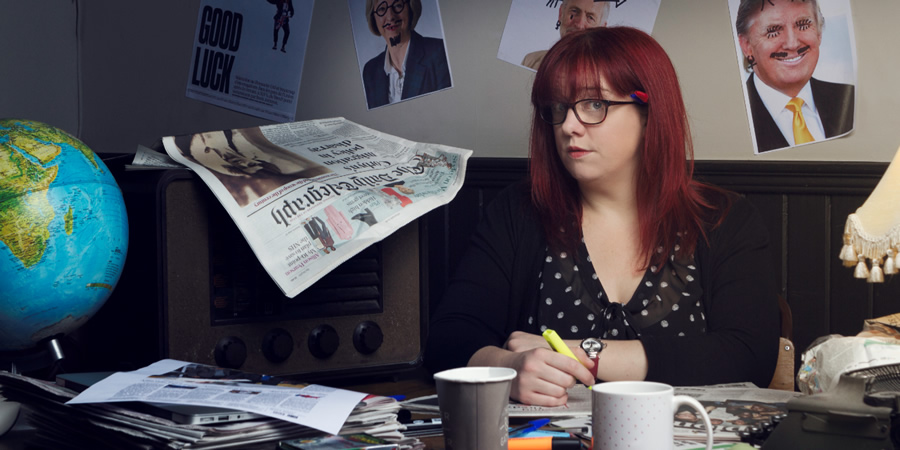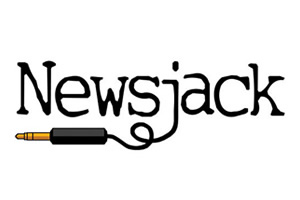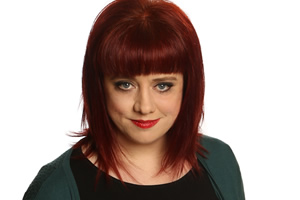Angela Barnes shares the secrets to writing for Newsjack

Have you ever listened to the radio and thought "I could write this stuff"? Well, with Newsjack returning to BBC Radio 4 Extra this Thursday, you have the chance to put your money where your mouth is. An open door policy on writing means anyone can submit material, and as someone who got their first break in radio (and who has written for Newsjack before), I'm so flippin' chuffed to be part of a show that welcomes new writers.
So, here is my advice for submitting material...
The News
Newsjack is based around the week's news, so any story that appears from the Friday through to the next week's deadlines is fair game. Remember, the fresher the better, so make sure you have an eye on the papers over the weekend.
My advice is to look for stories that aren't on the front page. The monologue will most likely cover the biggest story of the week, and we'll be inundated with material on the top stories.
Go deep. Look for stories that might not be so obvious. Check out the business pages, the tech pages, the lifestyle pages, the sports pages. And remember, you don't necessarily have to know about the subjects to craft a joke around them. In fact, it can be better that way, because then you'll know it is accessible to listeners who may also be unfamiliar with the topic.
The Jokes
The key to a good one-liner is to get to the joke as quickly as you can. If you write a long-winded set-up to a joke, your audience can lose patience, and the joke will need a bloomin' brilliant pay off to get them back.
My top-tip for writing jokes is that if a word can be taken out and it still makes sense, take it out.
Remember, your jokes are not going to be read by the audience, they are going to be heard. Say them out loud before you send them in, and check that the rhythm works.
Oh, and check Twitter before you send something in - there's nothing more frustrating than finding out the brilliant joke you sent in has been thought of by everyone else already. And to avoid that happening, don't stop at your first thought about a story, push past it, and go with your third, fourth or even fifth idea.
The Sketches
Sketches should also be short, short, short. We are trying to pack a lot into the show, so if your sketch is six pages long, it's unlikely to get in. Aim for two pages, and definitely no more than three.
Don't be afraid to use your imagination. This is radio, and the glory of radio is that we don't have to worry about building expensive sets. Your sketch can be based wherever it needs to be, so if it would be funnier in a boat, put it in a boat!
The cast is always made up of two women and two men, so use the voices at your disposal, know what you want your sketch to say, and make sure everything in it serves that point and is rammed with jokes.
And last but not least, don't underestimate the opening and closing sections of your sketch. I will be introducing it, so think about how you'd like it to be presented and try to write something for me to say. Working out a cracking ending is just as important, as you want your sketch to go out on a laugh, not a fizzle.
And Finally...
Don't give up!
I know all too well how frustrating it can be to write material that doesn't make it to air. I always say that over half of what I write is for the bin; that's just the way writing comedy is. But writing jokes is like using a muscle in that the more you use it, the better you get, and the better your hit rate becomes. So don't be disheartened, there are a number of reasons why a joke or sketch may not make the recording or the broadcast, and it doesn't mean you're not good enough. The key is just to keep submitting the stuff.
Off you go!
For more insight and tips see our Guide to writing for Newsjack


